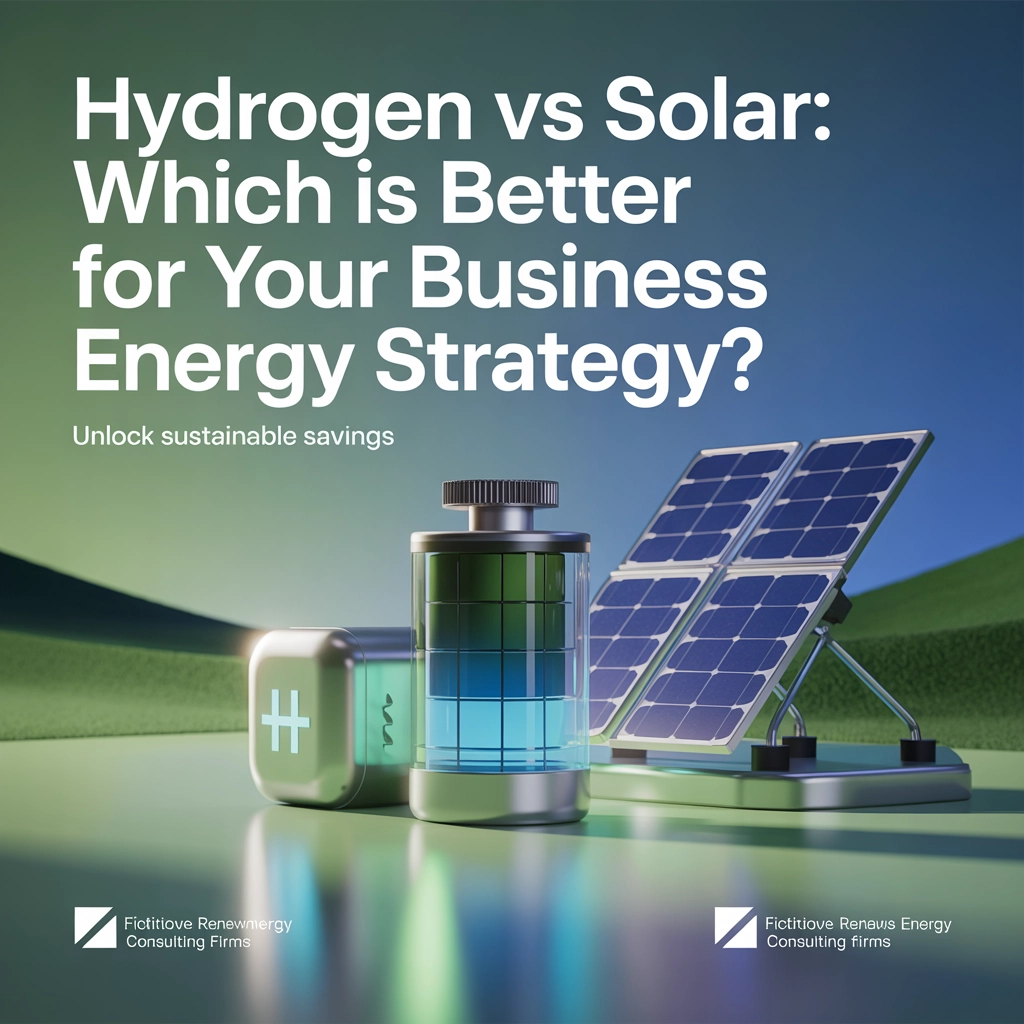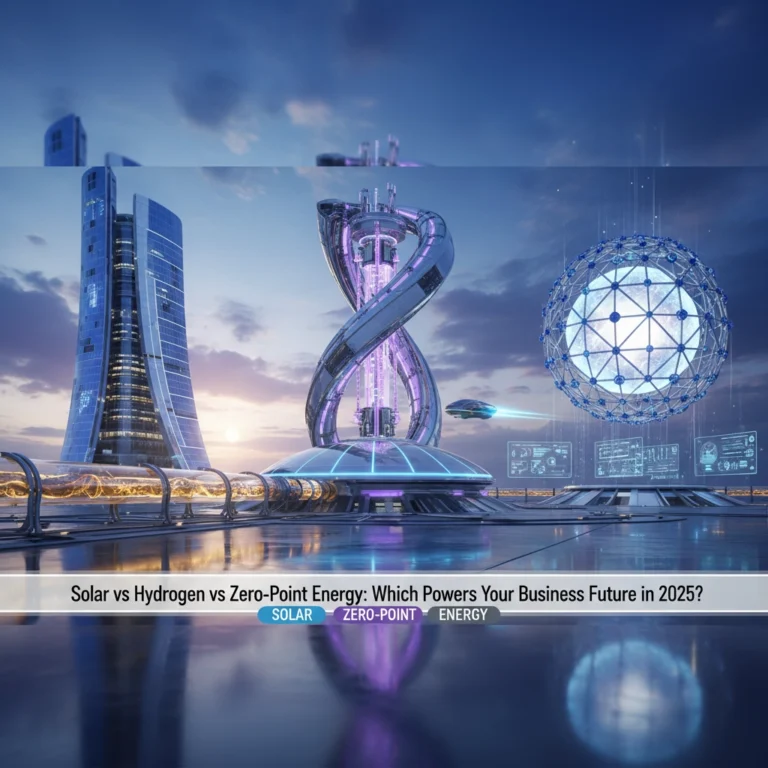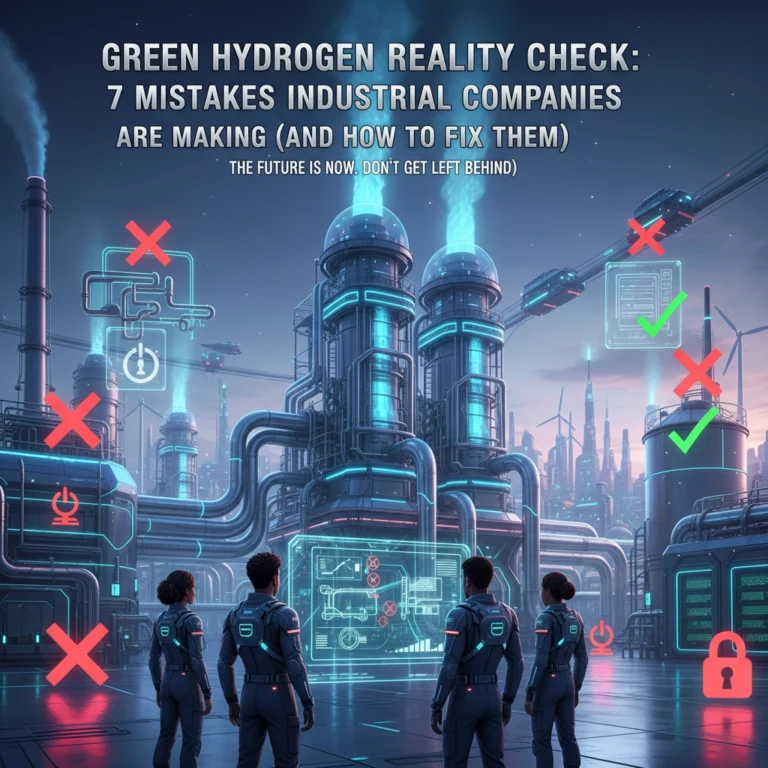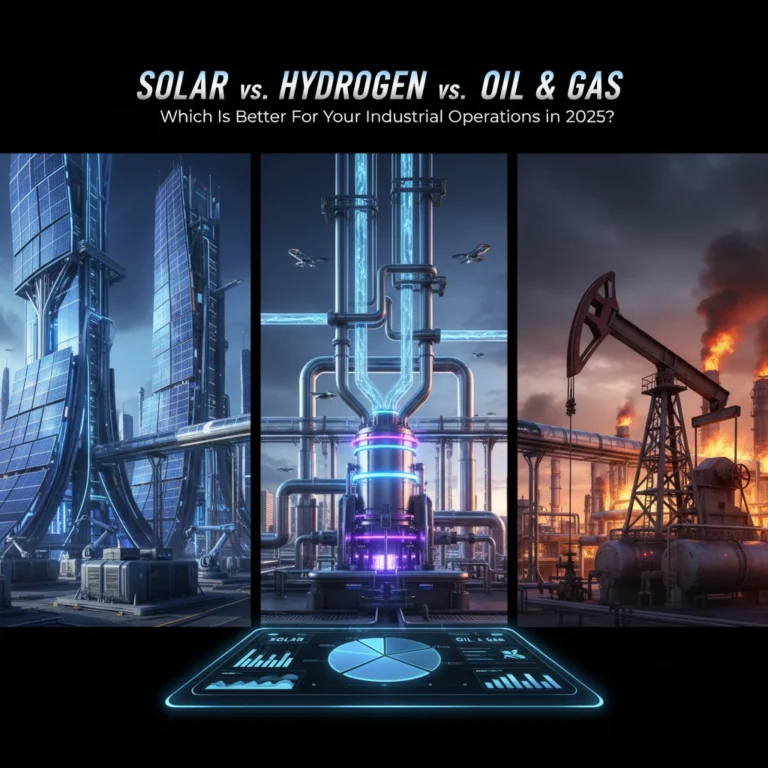Hydrogen vs Solar: Which Is Better For Your Business Energy Strategy?
For most businesses today, solar energy offers the more practical and cost-effective solution for immediate energy needs, while hydrogen represents a strategic long-term investment for energy storage and specialized applications. The optimal choice depends on your business's specific energy demands, infrastructure requirements, and sustainability goals.
Solar Energy: The Immediate Game-Changer
Solar energy has become the go-to choice for businesses looking to cut energy costs quickly. With panel efficiencies ranging from 15% to 22%, modern solar systems convert sunlight directly into electricity that integrates seamlessly with your existing electrical infrastructure. The numbers speak for themselves: solar costs have dropped dramatically over the past decade, making it one of the most affordable electricity sources available.

Why Solar Works for Business
The beauty of solar lies in its simplicity and immediate impact. Once installed, solar panels start generating electricity from day one, dramatically reducing your monthly utility bills. The technology is mature, proven, and requires minimal maintenance: perfect for businesses that want reliable energy without the headaches.
Solar systems are incredibly scalable too. Whether you're running a small office or a massive manufacturing facility, solar can be deployed at virtually any scale. Small commercial rooftops can accommodate enough panels to offset significant portions of energy usage, while larger businesses can explore utility-scale installations or solar canopies over parking areas.
The Solar Reality Check
But let's be honest about solar's limitations. The biggest challenge is intermittency: solar panels only generate electricity when the sun shines. This means businesses operating around the clock need backup power or battery storage systems, which add to the upfront costs.
Weather dependency is another factor. While modern panels work efficiently even on cloudy days, seasonal variations and weather patterns will affect your energy production. For businesses in areas with limited sunlight, the return on investment timeline extends significantly.
Hydrogen: The Power-Dense Pioneer
Hydrogen energy represents the frontier of business energy solutions. With exceptional energy density, hydrogen can store massive amounts of energy in compact spaces: ideal for businesses with high energy demands or limited real estate for energy infrastructure.

Hydrogen's Unique Advantages
What makes hydrogen fascinating is its versatility. Unlike solar, which only generates electricity, hydrogen can power fuel cells for electricity generation, provide heat for industrial processes, and fuel transportation fleets. Hydrogen fuel cells achieve impressive efficiencies of up to 60% in converting stored hydrogen back to electricity.
The storage capability is where hydrogen truly shines. While battery systems degrade over time, hydrogen can maintain its energy potential for extended periods without significant loss. This makes it perfect for seasonal energy storage or backup power systems that need to remain dormant for long periods.
For businesses requiring consistent, high-power output regardless of weather conditions, hydrogen offers complete energy independence. Once you have hydrogen in storage, you can generate electricity 24/7, making it ideal for critical operations that can't afford power interruptions.
The Hydrogen Investment Reality
Here's where hydrogen gets expensive. Production costs remain high, particularly for "green hydrogen" produced using renewable energy sources. The infrastructure requirements are substantial: you need systems for hydrogen production, storage tanks rated for high-pressure gases, and specialized fuel cells for electricity generation.
Current hydrogen infrastructure is also underdeveloped compared to electrical grid systems. This means businesses often need to invest in complete end-to-end hydrogen solutions rather than tapping into existing infrastructure like with solar.
Head-to-Head: Solar vs Hydrogen
| Factor | Solar Energy | Hydrogen Energy |
|---|---|---|
| Initial Investment | Low to moderate | High |
| Monthly Operating Costs | Very low | Moderate to high |
| Energy Efficiency | 15-22% (panels) | Up to 60% (fuel cells) |
| Storage Solution | Separate battery systems required | Built-in long-term storage |
| Scalability | Highly scalable | Scalable but infrastructure-dependent |
| Installation Timeline | Fast (weeks to months) | Extended (months to years) |
| Maintenance Requirements | Minimal | Moderate |
| Energy Independence | Partial (daylight hours) | Complete (24/7 capability) |

Strategic Business Applications
Solar Makes Sense When:
- Your business operates primarily during daylight hours (offices, retail, light manufacturing)
- You have adequate roof space or land area for panel installation
- Immediate cost savings and quick ROI are priorities
- You're looking for proven, low-risk technology
- Your location receives abundant sunlight with supportive solar policies
Hydrogen Is Worth Considering When:
- You require continuous, high-power output around the clock
- Your business operates transportation fleets or heavy industrial equipment
- Long-term energy storage is critical for your operations
- You have substantial capital available for infrastructure investment
- Complete energy independence is a strategic priority over immediate savings
The Hybrid Revolution
Here's where things get interesting: many pioneering businesses aren't choosing between solar and hydrogen. They're implementing solar hydrogen systems that combine both technologies for maximum benefit.
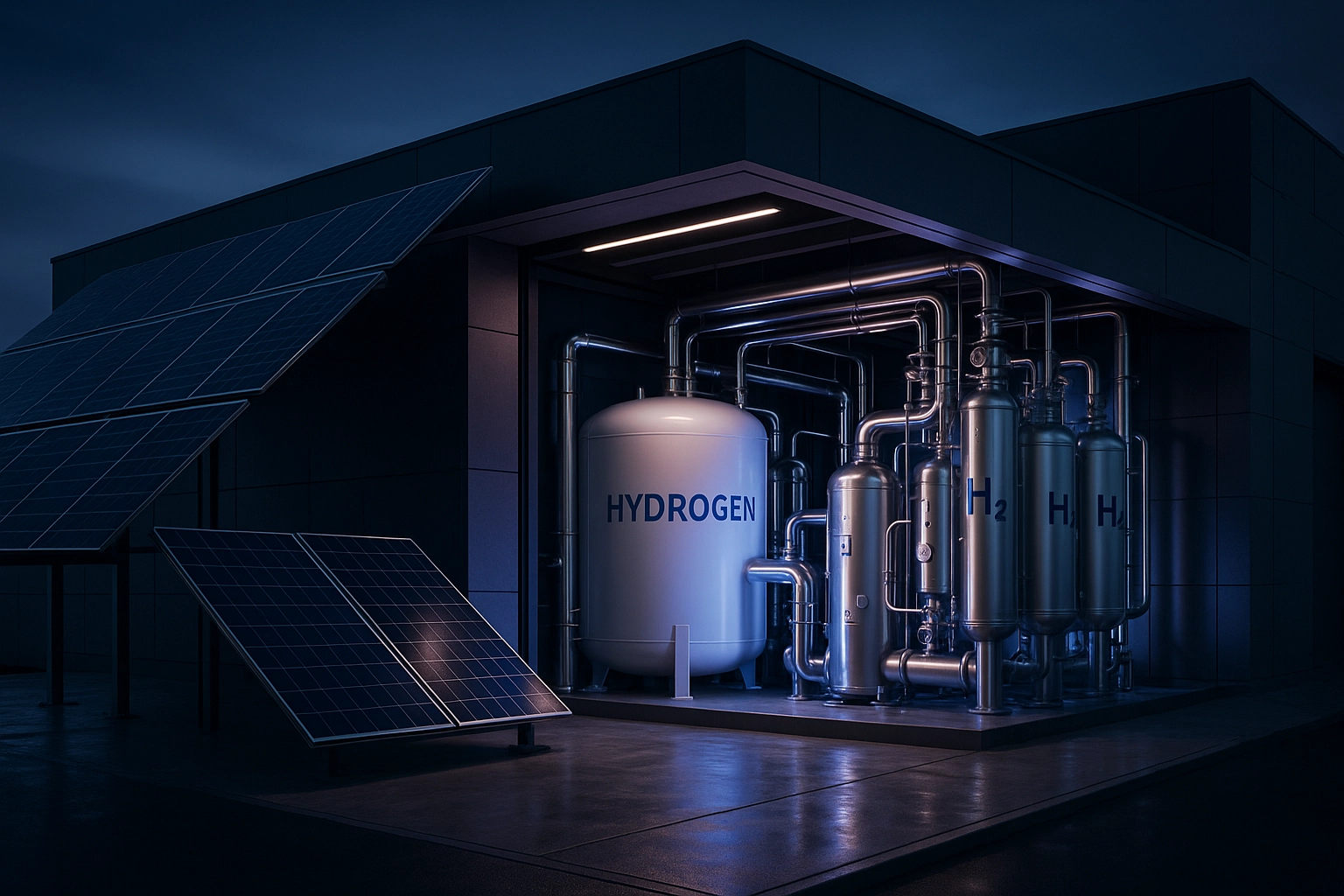
This hybrid approach uses solar panels to generate electricity during peak sunlight hours. Excess electricity powers electrolysis systems that split water into hydrogen and oxygen, storing the hydrogen for later use. When solar production drops, fuel cells convert the stored hydrogen back into electricity.
The result? A completely emission-free energy cycle that provides immediate electricity benefits while building long-term storage capabilities. While more complex initially, this strategy positions businesses for the evolving energy landscape while maximizing the benefits of both technologies.
Making Your Strategic Decision
The most effective business energy strategy often involves a phased approach. Start with solar energy solutions to capture immediate cost savings and gain experience with renewable energy systems. This builds internal expertise while providing measurable ROI from day one.
As your business grows and energy demands increase, evaluate hydrogen integration for specialized applications. This progression allows you to leverage proven solar technology while positioning for future opportunities as hydrogen costs decrease and infrastructure develops.
Consider your business's unique factors: energy usage patterns, available capital, risk tolerance, and strategic timeline. Companies with predictable daytime energy needs often find solar provides the fastest path to energy cost reduction. Businesses requiring 24/7 high-power operations or those with substantial transportation fleets may justify the higher investment in hydrogen systems.

The energy landscape is evolving rapidly, with both solar and hydrogen technologies improving while costs continue declining. The businesses that thrive will be those that start with practical solutions today while building toward comprehensive energy strategies that adapt to future opportunities.
Whether you choose solar, hydrogen, or a hybrid approach, the key is taking action. Energy independence isn't just about cost savings: it's about positioning your business for long-term resilience and competitive advantage in an increasingly energy-conscious marketplace.
Ready to explore your business energy options? Contact our energy strategy team to discuss which approach aligns best with your specific business needs and goals.

